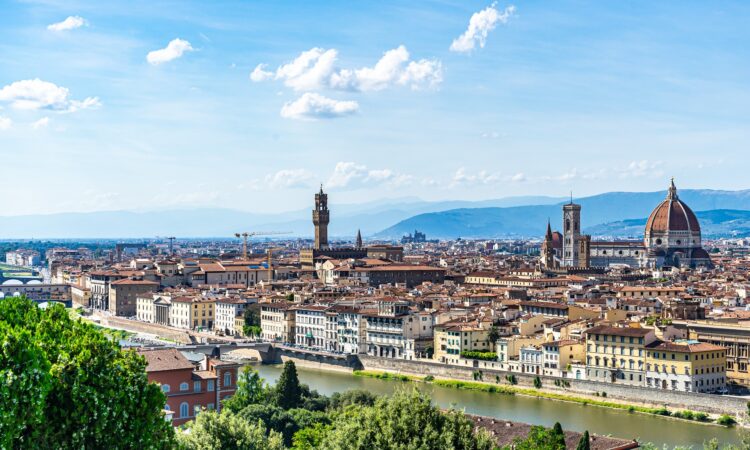Over the past two decades, Florence has undergone a profound transformation. Once characterized by a delicate balance between local life, cultural heritage, and tourism, the city center has increasingly become dominated by hotels, student residences, and luxury apartments.
A list circulating on social media — later echoed by Corriere Fiorentino — highlights just how many historic buildings have been converted into accommodation facilities. From the former Military Hospital in Via San Gallo, now a resort, to the old Liceo Artistico in Via Cavour, now a hotel, the pattern is clear: many iconic sites of civic and social life have been turned into places catering primarily to visitors and temporary residents.
The current debate gained new momentum after two recent episodes. The first was the opening of the Student Hotel (now Social Hub) in Viale Lavagnini, one of the most visible symbols of Florence’s shift toward international student residences and hybrid hospitality. The second was the controversy over the black-and-white tower built on the site of the former Teatro Comunale, once home to the Maggio Musicale Fiorentino. The project, which turned a cultural landmark into luxury apartments, has become emblematic of the city’s transformation and sparked a wave of criticism across social networks and local media.
The list of conversions is long and striking. It includes the Ruby Hotel in Piazza della Libertà, luxury apartments at Palazzo Serristori on Lungarno Serristori, residences inside the ex-Collegio alla Querce at Le Cure, and numerous student housing projects developed in former offices, schools, and hospitals. Even spaces such as the ex-Borsa Merci near Ponte Vecchio and the former Monte dei Pegni in Piazza San Paolino have been transformed into high-end hospitality structures.
This transformation did not happen by chance. In 2021, the Municipality of Florence and the Tuscany Region published the brochure Invest in Florence, explicitly designed to attract international capital. The document promoted the city as a “city of opportunities,” highlighting dozens of buildings and former public properties as available for redevelopment.
Many of the proposed end uses included tourism, student housing, and luxury residential projects. What for some represented a chance to regenerate abandoned spaces, for others signaled an institutional endorsement of policies that accelerate the conversion of Florence into a hub for high-value hospitality rather than affordable housing or local services.
While these projects have brought investment and international attention, they also illustrate the impact of a political strategy that has favored high-value tourism and real estate over residential life. The consequences are visible in everyday Florence: historic shops forced to close in the center, rising rents that push families and students to the periphery, and a proliferation of restaurants and eateries designed for visitors rather than residents.
The phenomenon is often described as “luxury overtourism.” Supporters argue that it has revitalized unused or abandoned buildings, but critics point out that the city’s social fabric is at risk. The disappearance of affordable housing and traditional commercial activities raises questions about who Florence is being shaped for — its citizens, or a global market of tourists and temporary tenants.
What is clear is that in just twenty years, the map of Florence has been redrawn. Streets once defined by schools, public services, and local institutions are now lined with hotels, private residences, and international student housing. The city, admired worldwide for its history, continues to evolve — but the price of this transformation is increasingly felt by Florentines themselves.
Support Florence Daily News
Florence Daily News is an independent news site covering the stories, culture, and life of Florence and Tuscany. We don’t rely on clickbait, invasive or hidden advertising, or paywalls. Instead, we believe in quality journalism that respects our readers and serves those who care about thoughtful, local reporting.
If you value our work, consider supporting us with a donation.
Donate securely via Stripe below.
Make a one-time donation
Make a monthly donation
Make a yearly donation
Choose an amount
Or enter a custom amount
Your contribution is appreciated.
Your contribution is appreciated.
Your contribution is appreciated.
DonateDonate monthlyDonate yearlyDiscover more from Florence Daily News
Subscribe to get the latest posts sent to your email.

